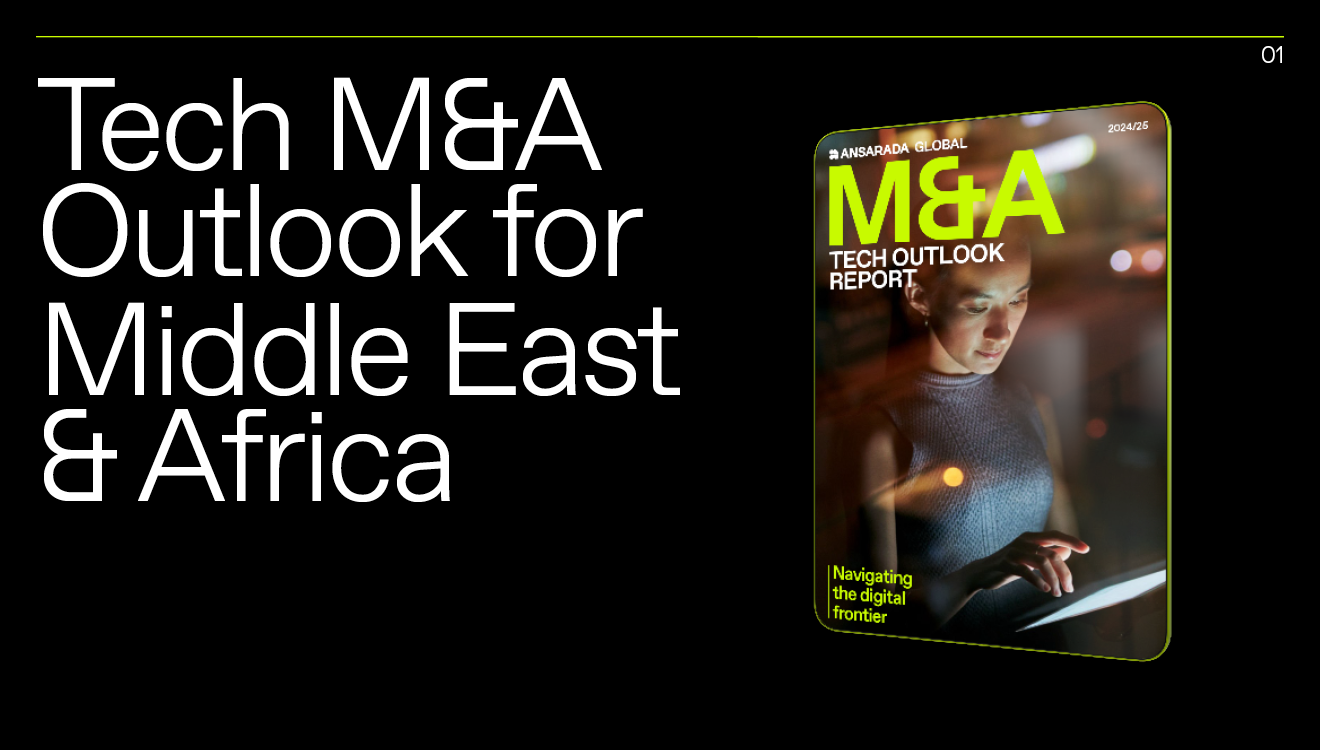Middle Eastern and North African deal markets face parched conditions
A challenging geopolitical climate means tough times for dealmaking in the desert.
By ansaradaThu Oct 10 2024

The first half of 2024 saw a slowdown in dealmaking in the Middle East and Africa (MENA), including exits and fundraising. Yet there are signs of resilience and potential for growth in these markets looking ahead.
In South Africa, PwC says business services including tech are set to undergo a transformative phase fuelled by a wave of mergers and acquisitions (M&A). This consolidation is being driven by the need for scale. The standout deal so far this year in the South African tech sector has been Xero’s $70 million acquisition of South African cloud-based reporting platform Syft Analytics.
Dealmaking in Middle East and Africa: a tale of two sectors
Pitchbook data shows private equity (PE) deal activity in MENA has decelerated, with $5.9 billion invested across 49 deals in the first half of 2024, according to data published by Pitchbook. This is a significant drop from the $15.4 billion deployed across 159 deals in 2023.
Despite the downturn, it’s not all bad news. The region is expected to grow modestly and sectors like education and healthcare are poised for expansion.
Venture capital (VC) activity has also weakened in MENA, with $1.3 billion invested across 321 deals in the first half of 2024. This is a sharp drop from the peak of $5.5 billion across 894 deals in 2022. Turkey and the United Arab Emirates lead in VC deal value and count, respectively, while Egypt and Saudi Arabia follow.
PE and VC-backed exit activity has plunged in MENA, with only $1.6 billion generated across 25 business exits in the first half of 2024. This is a considerable dip from the annual exit values exceeding $10 billion in the past four years.
In the Gulf Cooperation Council, monetary policy decisions have largely mirrored the US, with the Central Bank of the UAE (CBUAE) maintaining its base rate at 5.4% and the Saudi Central Bank (SAMA) keeping its repo rates at 6%.
Fundraising: cautious optimism follows MENA's record year
According to local South African blog The Big Deal, in September, African start-ups raised $138 million in September, slightly below the $159 million raised in August.
Across MENA a record $35.3 billion was raised in 2023 across 86 vehicles, driven by the $30.0 billion Lunate Capital Climate Fund (Alterra) closure. This fund, created with a consortium of investors, is focused on climate change initiatives in the Global South.
In H1 2024, $9.4 billion was raised across 32 funds in MENA, with the largest close being the $5.2 billion Oman Future Fund. It will invest in domestic projects, excluding oil and gas and real estate, and has a significant allocation for small businesses and start-ups.
Specialist funds in MENA are growing, with notable closes in H1 2024 including the $477.7 million ARC KSA Logistics Fund III and the $364.8 million Alinma-Al-Nahdi Real Estate Fund. The healthcare sector also saw the closure of the $245.0 million Afiyah Fund, one of the largest in the MENA region. Additionally, Artnouve Venture Capital Investment Fund closed at $250.0 million, becoming one of Turkey’s largest VC funds.
Looking ahead: uncertainty, but some reasons for optimism
Fundraising activity is forecast to continue to improve across MENA, underpinned by domestic and international limited partner capital as well as substantial government backing.
Initiatives like the Saudi Vision 2030 economic diversification program are expected to keep capital flows elevated, although risks such as weaker global demand and geopolitical tensions persist.